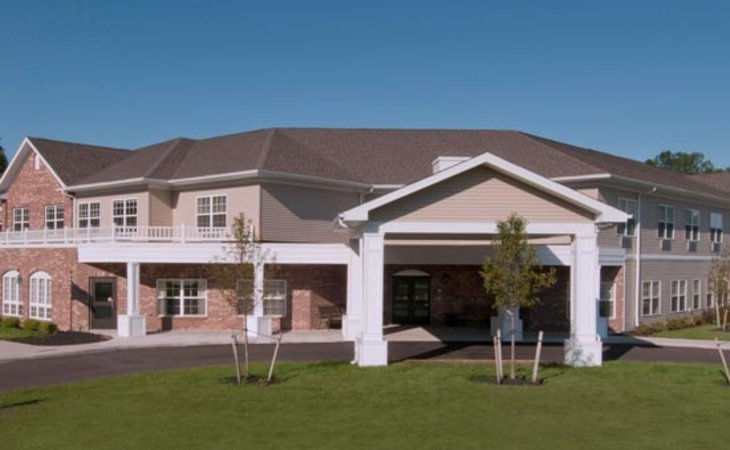Charlotte Memory Care: Safe and Secure Setting for Elders
Charlotte Memory Care: Safe and Secure Setting for Elders
Blog Article
What to Anticipate in Memory Treatment: A Comprehensive Guide to In-Home Solutions
As family members come to terms with the obstacles of caring for somebody with memory loss, the realm of at home services offers a lifeline of assistance and specialized treatment. Comprehending what to expect in memory treatment is crucial for making sure the wellness of both the individual with memory problems and their caregivers.
Daily Regimens and activities
Taking part in organized everyday activities and regimens is a fundamental element of providing top quality take care of people in memory care centers. These activities are diligently developed to accommodate the particular needs of homeowners with cognitive disabilities, such as Alzheimer's condition or dementia. Daily routines play an essential function in keeping a sense of experience, security, and function for people in memory treatment.

In addition, daily routines assist people in memory treatment centers to really feel even more focused and much less anxious. Consistency in activities and routines can decrease confusion and anxiety, supplying a feeling of security and convenience. Caretakers and personnel play an essential function in assisting in these tasks, making sure that each resident obtains individualized and thoughtful treatment customized to their one-of-a-kind choices and capacities.
Specialized Treatment Solutions
Within memory care facilities, specialized care solutions are important to deal with the one-of-a-kind demands and obstacles encountered by people with cognitive problems such as Alzheimer's condition or mental deterioration. These services are developed to supply tailored support that accommodates the details needs of homeowners managing amnesia. Specialized care solutions in memory treatment facilities frequently include individualized treatment plans, assistance with tasks of everyday living, medicine management, and behavior modifications targeted at boosting lifestyle and reducing distress.
Moreover, memory treatment facilities typically supply organized programs and activities especially created to stimulate cognitive feature and promote social engagement amongst residents. These tasks may consist of memory-enhancing workouts, sensory excitement therapies, and memory therapy sessions. Additionally, specialized treatment services often involve regular surveillance of locals' health and wellness and well-being by experienced employee who are equipped to deal with the unique difficulties related to cognitive decline.
Safety And Security Steps and Setting
Executing rigorous precaution and creating a safe environment are vital top priorities in memory care centers to guarantee the health and protection of citizens with cognitive problems. Safety in memory care starts with safe and secure building style, consisting of secured doors and monitored entries to stop homeowners from wandering outside without supervision. In addition, centers frequently have security system and monitoring electronic cameras to monitor locals and respond swiftly to any type of emergencies. Inside, the setting is meticulously planned to minimize dangers, with hand rails, order bars, and non-slip flooring to stop drops. Furniture is organized to assist in simple navigation, and potentially dangerous products are locked away or removed. Team member receive specialized training in dealing with emergencies, de-escalating challenging behaviors, and ensuring the safety of homeowners in all times. Normal security evaluations are conducted to identify and address any kind of possible dangers quickly. By prioritizing safety and security actions and keeping a safe environment, memory treatment centers objective to provide a safety and calming setup for individuals with cognitive impairments.
Interaction and Engagement Methods
With a focus on promoting purposeful communications and enhancing lifestyle, reliable communication techniques play a critical role in supporting individuals in memory care facilities. Interaction in memory treatment entails recognizing the distinct requirements of citizens that may have cognitive disabilities like mental deterioration. Basic language, clear instructions, and non-verbal hints such as motions and faces are important tools for efficient interaction. Caretakers must come close to homeowners with perseverance, compassion, and regard, creating a supportive setting where people really feel comprehended and valued.
Interaction techniques are also vital in memory care, helping homeowners stay energetic, boosted, and linked to their surroundings. Tasks like music treatment, art classes, reminiscence sessions, and sensory excitement can spark memories, boost mood, and advertise socializing. Customizing activities per individual's passions and capabilities is essential to cultivating interaction and a sense of achievement. Additionally, including familiar items, photographs, and songs from the person's past can supply convenience and promote favorable memories. By prioritizing tailored communication and interaction strategies, memory treatment centers can enhance the general health and high quality of life for their residents.
Caretaker Assistance and Resources
Given the vital duty caretakers play More about the author in implementing efficient interaction and involvement strategies for residents in memory care facilities, supplying ample assistance and sources is necessary to guarantee the wellness of both the caretakers and the individuals under their care. Caregivers in memory care settings typically encounter unique challenges that can affect their emotional and physical well-being. To deal with these challenges, various support systems and resources are available to aid caretakers in giving the very best feasible treatment.
One necessary type of support is caregiver education and training programs. These programs equip caretakers with the required abilities and expertise to successfully handle the actions and signs connected with memory loss. Additionally, assistance teams use caregivers the opportunity to attach with others who are experiencing similar obstacles, supplying a sense of community and understanding.

Conclusion

Engaging in organized day-to-day activities and regimens is a basic component of supplying quality care for individuals in memory treatment centers.Within memory care facilities, specialized treatment solutions are important to resolve the unique requirements and obstacles faced by individuals with cognitive disabilities such as Alzheimer's condition or dementia. Specialized care services in memory care centers often include customized treatment strategies, assistance with activities of everyday living, medicine management, and behavior therapies aimed at enhancing high quality of life and reducing distress.
Provided the crucial role caregivers play in implementing reliable communication and engagement methods for homeowners in memory treatment centers, giving adequate support and sources is important to guarantee the wellness of both the caregivers and the individuals under their care. Daily activities, specialized care solutions, safety and security measures, interaction approaches, and caretaker assistance are crucial elements of in-home memory care.
Report this page